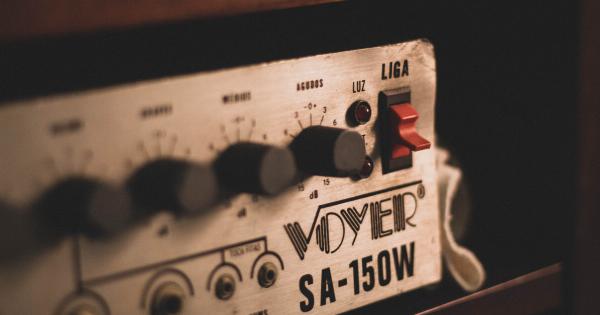Depression is a complex mental health condition that affects millions of people worldwide.
While pharmaceutical interventions such as antidepressant medications have proven to be effective for many individuals, there is an increasing interest in advanced non-pharmaceutical solutions for depression. These alternative approaches encompass a diverse range of techniques and therapies that target various aspects of the condition.
In this article, we will explore some of the most promising non-pharmaceutical solutions for depression, offering insights into their potential benefits and limitations.
The Power of Psychotherapy
Psychotherapy, also known as talk therapy, is an integral part of non-pharmaceutical depression treatments. Various types of psychotherapy have been developed, each focusing on different aspects of depression.
Cognitive-Behavioral Therapy (CBT) aims to modify negative thought patterns and behaviors, empowering individuals to develop healthier coping mechanisms. Interpersonal Therapy (IPT) focuses on improving communication and relationship skills to alleviate depressive symptoms.
Other forms of therapy, such as Psychodynamic Therapy and Mindfulness-Based Cognitive Therapy (MBCT), can also provide substantial benefits for individuals with depression.
Transcranial Magnetic Stimulation (TMS)
Transcranial Magnetic Stimulation (TMS) is a non-invasive procedure that uses magnetic fields to stimulate certain areas of the brain.
It has been approved by regulatory bodies as a treatment for depression that does not respond to conventional pharmaceutical interventions. TMS targets the prefrontal cortex, an area of the brain associated with mood regulation. By stimulating this region, TMS can help alleviate depressive symptoms.
Although it may cause some side effects, such as headaches or scalp discomfort, TMS shows promise as an effective non-pharmaceutical solution for depression.
Exercise and Physical Activity
Physical activity is known to have numerous physical health benefits, but it can also significantly impact mental well-being, including depression.
Engaging in regular exercise releases endorphins, the brain’s natural feel-good chemicals, which can help combat depressive symptoms. Exercise also promotes better sleep, reduces stress, and improves cognitive function, all of which contribute to a decrease in depressive symptoms.
Incorporating activities like walking, jogging, yoga, or other forms of exercise into daily routines can be an excellent non-pharmaceutical strategy to manage and alleviate depression.
Art Therapy and Creative Expression
Art therapy and creative expression have gained recognition as valuable tools in addressing depression and improving overall mental health.
Engaging in artistic activities can provide individuals with a nonverbal outlet for expressing their emotions, reducing stress levels, and enhancing a sense of self-awareness. Painting, drawing, writing, or engaging in any other creative form can serve as a powerful means of processing emotions and promoting self-discovery.
Art therapy, conducted by trained professionals, offers a supportive environment where individuals can explore their feelings and experiences artistically.
Acupuncture and Traditional Chinese Medicine (TCM)
Acupuncture, an ancient practice rooted in Traditional Chinese Medicine (TCM), involves the insertion of fine needles into specific points on the body.
It is believed to restore the flow of energy, or Qi, within the body, thereby promoting overall health and well-being. While the specific mechanisms by which acupuncture alleviates depression are not yet fully understood, some studies have shown promising results.
Acupuncture may stimulate the release of neurotransmitters, such as serotonin and endorphins, that play a crucial role in mood regulation. As a non-pharmaceutical solution, acupuncture offers an alternative path for individuals seeking complementary approaches for managing depression.
Nutritional Interventions and Dietary Supplements
Mounting evidence suggests that nutrition plays a vital role in mental health, including depression. A healthy, balanced diet rich in essential nutrients is essential for optimal brain function.
Specific nutritional interventions have shown potential benefits in managing depression. For example, omega-3 fatty acids, commonly found in fatty fish like salmon, have been linked to improved mood.
Likewise, studies have explored the role of certain vitamins and minerals, such as vitamin D, B vitamins, and zinc, in reducing depressive symptoms. While dietary modifications and supplements cannot replace professional treatment, they may serve as valuable additions to a comprehensive non-pharmaceutical approach for depression.
Mindfulness Meditation and Stress Reduction
Mindfulness meditation involves paying deliberate attention to the present moment without judgment. It has gained widespread recognition for its ability to reduce stress, improve emotional well-being, and alleviate depressive symptoms.
Through regular practice, individuals can cultivate a heightened sense of self-awareness and develop skills to manage negative thought patterns and emotions. Mindfulness-Based Stress Reduction (MBSR) programs, which incorporate meditation and mindfulness exercises, have shown promising results in reducing the risk of relapse in individuals with recurrent depressive disorders.
Animal-Assisted Therapy
Animal-assisted therapy involves interactions between individuals and specially trained animals, such as dogs or horses, under the guidance of healthcare professionals.
It has been shown to have numerous psychological and emotional benefits for individuals with various mental health conditions, including depression. Spending time with therapy animals can promote feelings of comfort, reduce stress, and increase socialization.
The presence of animals may also encourage individuals to engage in physical activity and provide a sense of companionship, addressing feelings of loneliness and isolation commonly associated with depression.
Music Therapy
Music therapy utilizes the power of music to address physical, emotional, cognitive, and social needs.
Listening to or participating in music-related activities, guided by trained professionals, can have a profound impact on mental health and well-being. Music has the ability to evoke emotions, stimulate positive memories, and provide a creative outlet for self-expression.
Engaging in music therapy sessions has been shown to reduce depressive symptoms, foster self-esteem, and improve overall mood and quality of life for individuals experiencing depression.
Sunlight Exposure and Vitamin D
Exposure to sunlight plays a crucial role in maintaining healthy levels of vitamin D, which is essential for various bodily functions, including brain health.
Vitamin D deficiency has been associated with an increased risk of depressive symptoms and mood disorders. While sunlight exposure alone cannot replace professional treatment, ensuring an adequate intake of vitamin D through safe sunlight exposure or supplementation may contribute to overall mental well-being.
Spending time outdoors, particularly during daylight hours, can also provide additional benefits such as stress reduction and improved sleep patterns.
Conclusion
Depression is a complex and multifaceted condition, and finding effective treatment approaches is crucial.
While pharmaceutical interventions remain an important part of treatment, exploring advanced non-pharmaceutical solutions can provide individuals with additional options for managing depression. From psychotherapy and transcranial magnetic stimulation to exercise, art therapy, and various holistic approaches, the potential benefits of these non-pharmaceutical treatments are vast.
By embracing a comprehensive and personalized approach to depression management, individuals can work towards a brighter and healthier future.





























